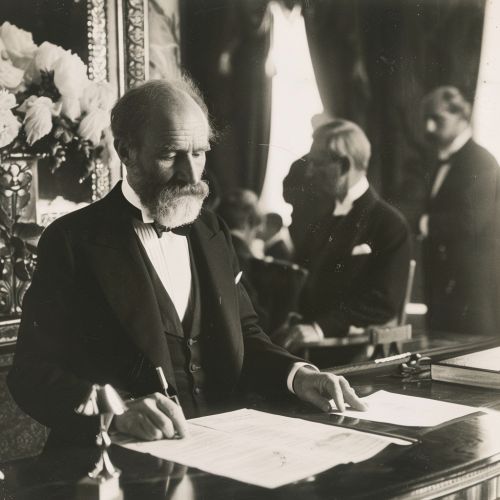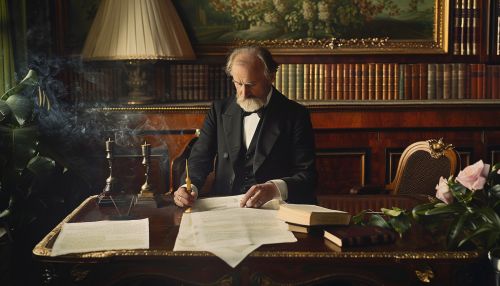History of the Nobel Prize
Origins and Establishment
The Nobel Prize is a set of prestigious international awards given annually in several categories, including Physics, Chemistry, Medicine, Literature, and Peace. The prizes were established by the will of Alfred Nobel, a Swedish industrialist, inventor, scientist, and philanthropist who is best known as the inventor of dynamite.


Alfred Nobel signed his last will and testament on November 27, 1895, at the Swedish-Norwegian Club in Paris. In his will, he left the majority of his fortune to establish the Nobel Prizes. This was a surprising decision, as Nobel's family and associates were unaware of his intentions. The executors of Nobel's will, Ragnar Sohlman and Rudolf Lilljequist, formed the Nobel Foundation to take care of Nobel's fortune and organize the awards.
Categories of the Nobel Prize
The Nobel Prizes were initially awarded in the fields of Physics, Chemistry, Medicine, Literature, and Peace. The categories were chosen by Nobel himself, and reflect his personal and professional interests. Nobel was an inventor, engineer, and industrialist, and the scientific prizes reflect his commitment to scientific progress and discovery. The Literature Prize reflects Nobel's love of literature, and his Peace Prize reflects his lifelong commitment to peace and diplomacy.
In 1968, the Sveriges Riksbank, the central bank of Sweden, established the Sveriges Riksbank Prize in Economic Sciences in Memory of Alfred Nobel. This prize is commonly referred to as the Nobel Prize in Economics. However, it is not one of the original prizes established by Nobel's will, but is considered to be part of the Nobel suite of awards.
Nobel Prize Awarding Institutions
The Nobel Prizes are awarded by various institutions, as specified by Alfred Nobel's will. The Royal Swedish Academy of Sciences awards the Prizes in Physics, Chemistry, and Economics. The Nobel Assembly at the Karolinska Institute awards the Prize in Medicine. The Swedish Academy awards the Prize in Literature. The Norwegian Nobel Committee awards the Nobel Peace Prize.
Nobel Prize Ceremonies
The Nobel Prizes are awarded annually on December 10th, the anniversary of Alfred Nobel's death. The award ceremonies take place in Stockholm, Sweden, for all categories except for the Peace Prize, which is presented in Oslo, Norway.
The Nobel Prize award ceremony is a grand event, attended by the Swedish and Norwegian Royals as well as international guests. The laureates receive a medal, a diploma, and a cash award that varies each year.
Controversies and Criticisms
Despite its prestige and international recognition, the Nobel Prize has been subject to various controversies and criticisms. Some of these relate to the selection process, others to the exclusion of deserving candidates, and some to the very nature of the prizes themselves.
Legacy and Impact
The Nobel Prize has had a profound impact on the global scientific and cultural landscape. It has brought recognition and support to scientists, writers, and peacekeepers who have made significant contributions to their fields. The Nobel Prize continues to be a symbol of international recognition for outstanding achievements.
